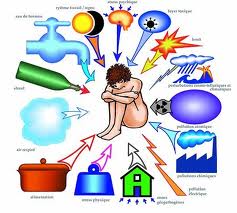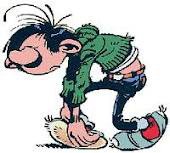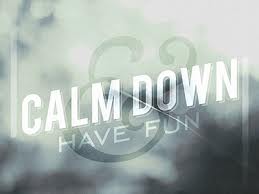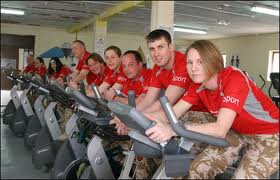A tennis match - a three day pressure cooker
Every day we have to deal with pressure. Some of it is beyond our control; some of it is within our control, but we manage it badly; some of it we simply sail through, and we might even deny that there was any pressure.

What pressure?
Pressure is such a complex, personal, and periodic element in tennis, I must avoid banalising any quick fixes to it. I would suggest that a key is to work through situations, a vast array of them, even in a "virtual" environment, and the experience will help. You'll begin to understand how you react in certain situations, and go through conscious, or unconscious routines to combat it. One thing is clear. Unidentified pressure is not good for tennis players.
Players who say that they only play well under pressure really mean that they love playing under certain conditions. And it's true. There are some players who perform remarkably well under certain conditions, where others struggle.

Pressure from fatigue
One simple example. In my team the club professional is technically a very correct player. He likes to hit the ball with consistency and rythmn. He is not brutal or violent with the ball. This is commendable, very pleasant to practise against and to look at. This is a very experienced tennis player, a very experienced sportsman and tennis teacher.
However, there is one thing where he completely goes to pieces. His technically-tuned hitting loses all its focus, and his performances become quite embarrassing. He hates playing away from home. He cracks under "surface" pressure. The irony is that although we play on about five or six really "different" surfaces, our two home surfaces are cement, and clay, and both are in perfect condition, both very good standard surfaces. So even at home he has to change surfaces, especially in summer. When he goes away, he'll be driving in the car and he's already moaning about the fact he has to play "up there", on "their dreadful courts". In the match itself, you can tell already in the warm-up that he has no interest. The points start and he goes about his work lazily and messily. Recently he played an away match with me on cement, so very similar to his home courts, but these courts are never cleaned. There is dust all over, bits of ball fluff, handkerchief and shoelace everywhere. This drove him mad.

Happy on the court
Let's take this example a step further. Let's say you're in a team with my coach. You know that your coach, supposedly your Number One player is flapping about playing conditions. He is moaning non-stop. His body language is agitated and negative. Can a team member shut himself off from this? Can he concentrate on his own game, and redevelop a positive attitude to his own match? Very few players are good at deflecting negative behaviour from team members. Pressure is catching.

Academy
So how does a less experienced player react to pressure, if the club pro is so fragile?
Let's move away from a team situation. The worst thing for an inexperienced junior is to make a mistake. Without the experience of relativity and reason, every mistake, however it occurs, sets off panic.
Let's imagine. My player misses a simple forehand cross court. Suddenly that player, consciously and unconsciously (a double whammy), thinks he'll miss every forehand cross court that he decides to take on. Experienced players struggle with this too. For a junior it's a nightmare, because their inexperience can easily "freeze" them. Not only will the forehand cross court simply not be taken on, but their whole game and hitting routine becomes disturbed. In a short time they'll want to quit, and the match is as good as lost.
Mistake pressure
It can happen in training too. My player misses his forehand cross court. Even if the exercise IS forehand cross courts, the hitting routines get disturbed. Even though training is far from a life-threatening situation, players don't like missing shots. They may start snatching at the ball, or swatting at it like a fly, or excessively trying to shape their rackets, or simply pushing the shot instead of hitting it. For a coach it is horrible, because when one player starts losing a shot, the whole group will certainly be affected. Also, ironically, the better your forehand cross court usually is, the worse an error on that shot can become. The bigger they stand, the harder they fall.
Know your technique
You think this is all bad. Now it gets worse. What happens if someone only TELLS my player his forehand cross court doesn't look as good as it did last week. Very very frequently this is enough to cramp up an otherwise perfectly good shot. And he hasn't even missed one yet!
Have A Great Story About This Topic?
Do you have a great story about this? Share it!
